I’m Still Here
Sadness lurks on almost every page of In the Illuminated Dark, a large, generous collection of the distinguished Israeli poet Tuvia Ruebner’s work. The book, which includes poems spanning Ruebner’s entire long career (he is now 90), is dedicated to his sister Litzi, who perished at the hands of the Nazis in 1942, when she was 13 years old. In an untitled poem immediately following the dedication, Ruebner writes:
Between one voice and the next
suddenly she’s
here, fleet-footed gazelle, quiet
as a shadow falling
over my open eyes
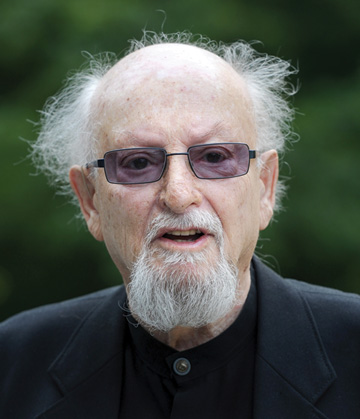
There is tragic irony in the image of a fleet-footed gazelle that was unable to flee; in the original Hebrew, it hearkens back to the blessing that Jacob gave to his son Naphtali. In her illuminating introduction poet-translator Rachel Tzvia Back quotes Ruebner as saying that the loss of his sister remains for him “the essence of grief and agony.” The untitled dedicatory poem closes:
I’m still here and she’s
gone.
One has the impression that all of Ruebner’s poetry is an attempt at making sense of that unthinkable reality. Nonetheless, Ruebner, who alone among his family was able to leave Slovakia in 1941, does not want to be labeled a Holocaust poet. “There is no connection between poetry and the Holocaust,” he told me when we met in late fall in his home on Kibbutz Merchavia, in northern Israel.
Although he has been the recipient of many honors, including the Israel Prize, acclaim did not come to Ruebner until late in his career, and In the Illuminated Dark is his first book to appear in English. Back, who has also translated Lea Goldberg and Hamutal Bar Yosef, remarks in her introduction that “the translator’s craft and art is a confluence of paradoxes,” a craft that requires one to constantly negotiate the line between creativity and fidelity, and also between making the poem “at home” in translation and preserving the otherness of the original language. Pointing to Franz Rosenzweig, who sought, in his translation of the great 12th-century Hebrew poet Yehuda Halevi into German “not to Germanize what is foreign but to make foreign what is German,” and to the Russian formalists’ notion of defamiliarization in poetry and in poetic language, Back insists that any good translation of poetry must include an element of estrangement through which it evokes the original language.
In her translation of “Father,” about the loss of Ruebner’s son, who disappeared on a trip to South America in the 1980s after his Israeli army service, Back does just that:
Like a lidless sleep
like a soundless voice
fingers with no hand
the father of a lost son
slowly becomes mute.
This juxtaposition of paradoxes is meant to jolt the reader, but the poem’s culmination amounts to a dissolution of this internal rhythm and ultimately of language itself. Back translates the Hebrew bli afapayim, literally: without eyelids, as “lidless,” a word that jumps out at the reader because of its very foreignness. And yet, while it is not a literal translation, lidless captures the essence not only of the meaning, but of the word itself—the sounds and shapes of the original language; the word afapayim includes a repetition of sound af-ap that is replicated in Back’s translation: lid-less.
Although Ruebner has suffered tremendous loss, he does not cut a tragic figure. Certainly, that was not my impression when I first caught sight of him on the kibbutz where he has lived since 1942. I was lost (the kibbutz has no street addresses) and he was driving toward me in a kind of go-cart dressed in a long, grey housecoat. Ruebner exuded warmth and seemed amused by my inability to find my way around.
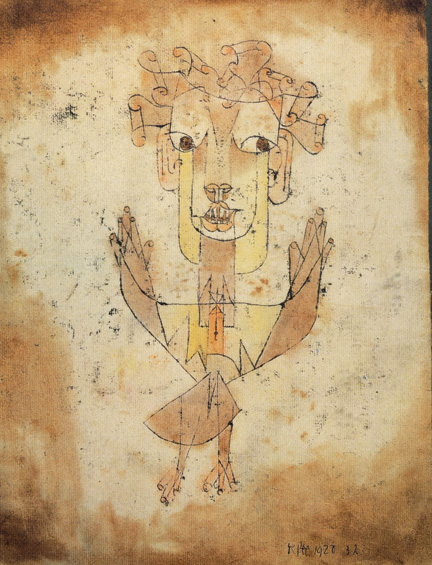
Even later, as he spoke of the harrowing loss of his son—who was literally lost without a trace while travelling in South America—a loss that came on the heels of so many others, the murder of his parents and sister by the Nazis, the violent death of his first wife in a bus accident, there wasn’t the kind of heaviness one associates with those who have endured too much. Listening to Ruebner speak of his life with a directness and simplicity that is rare even among those with less calamitous histories, I couldn’t help but wonder how someone who has suffered so much can continue not only to live, but to find the joy in living. Although loss has shaped Ruebner and his work, it does not define him. In “Wonder,” from his 2011 collection Contradictory Poems, Ruebner writes:
If after everything that has happened
you can still hear the blackbird,
the tufted lark at dawn, the bulbul and the honey-bird—
don’t be surprised that happiness is watching the clouds being wind-carried away,
is drinking morning coffee, being able to execute all the body’s needs
is walking along the paths without a cane
and seeing the burning colors of sunset.
A human being can bear almost everything
and no one knows when and where
happiness will overcome him.
The poem’s suggestion that happiness can be found in the most mundane aspects of our lives may seem trite, but what Ruebner offers here is the notion that happiness isn’t so much something we seek out as it is inherent to life itself—as much in the ability to notice the “clouds being wind-carried away” as in the ability to “execute all the body’s needs.” For Ruebner, to live is to exist in a state of wonderment, and it is precisely in that state that happiness finally overcomes us.
In “Angelus Novus,” Ruebner responds to Walter Benjamin’s famous description of the Paul Klee painting by the same name:
My face is on my back. I see
heaps and heaps of ruins.
Tiny hopes were tossed aloft, scorched
they plummeted into the dark.
I was spewn out.
I rose up.
I was reborn
translucent as smoke.
Mute time
blows from childhood’s pine groves,
presses on my stubborn heart,
spreads my wings.
I am pushed back toward what is coming next.
When will he come, the one to extinguish the fire in my eyes?
Where Benjamin’s Angel of History has his “face . . . turned toward the past,” Ruebner suggests an even more uncanny image, “My face is on my back.” The wreckage that Benjamin’s angel sees piling up is tragically real for Ruebner, who, looking back, sees “heaps and heaps of ruins,” a catastrophic piling up of personal tragedies that begins with him being “spewn out,” literally, from Slovakia, the country of his birth. Time is mute, inept; what we call “progress,” notes Benjamin’s angel, is, in fact, a terrible storm. This is what pushes Ruebner “back toward what is coming next.”
Some of Ruebner’s best poems are those that reflect on the act, or art, of writing itself. Take, for example, the opening lines of “Awakening”:
I don’t begin
my poem begins
me, again
When I asked him about his method in writing, the poet explained that he sets out with no intention except simply to “find the right words . . . words that don’t lie.” In “A Guide for the Young Poet” Ruebner offers a study in contradictions:
Be faithful to the forsaken
Study the melody
with sealed ears
Listen with your hands
Tap out the rhythm
without moving a finger
[. . . ]
Now you can begin
by the sweat of your brow.
What he’s suggesting here, it seems to me, is that poetry is born out of the ability and willingness to engage with and live inside the conflicts that life presents. To quote the venerable American-Jewish poet Jerome Rothenberg, “the poetic process, seems . . . when it’s really working, most to allow room for contradiction and for conflict.” Thus, in “Farewell from a Friend,” a poem dedicated to his close friend and poet Dan Pagis, Ruebner writes: “We walked together each on his own path.”
Ruebner’s “Testimony” is a political poem that gives voice to the poet’s disavowal of Israeli nationalism but, perhaps more importantly, throws into question the very meaning of home:
I exist in order to say
this house is not a house
place of confiscations, parched rock, fear
Ruebner has said of himself that he has no homeland, except, perhaps, in people and in the poetry that allows him to give expression to that which cannot otherwise be broached.
Each poem, Ruebner told me, is like a world unto itself with its own internal laws. To write poems is to take one’s experiences, thoughts, emotions, and “transfer them to the state, let us say, of the poem.” In this way, one can speak of the traumatic past, because it is “over there,” in the world of the poem. And yet, said Ruebner, poetry does not, ultimately, set him free of the past, of his memories. “I would have liked to forget,” Ruebner told me, “but I cannot.”
Although he rejects the label of Holocaust poet, Ruebner acknowledges that poems written after the war must bear witness somehow—even if only through a kind of stuttering. Commenting on Theodor Adorno’s famous pronouncement that “to write poetry after Auschwitz is barbaric,” Ruebner told me “it’s barbaric in the way that it’s barbaric that after a forest fire new trees grow.” Adorno was right, he said, “but poetry is so fundamental . . . it bursts forth.”
Suggested Reading
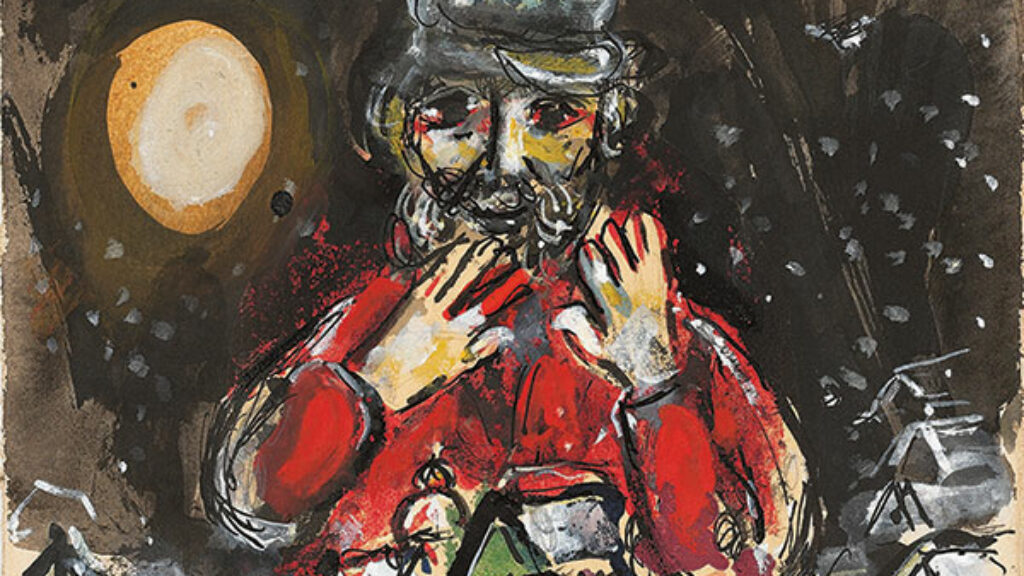
Screwball Tragedy
Picture a Jewish town, located deep in a Polish forest, that hasn’t received so much as a postcard from the outside world in more than a century. Max Gross conjured it up The Lost Shtetl: A Novel, and the result is both screwball and serious.
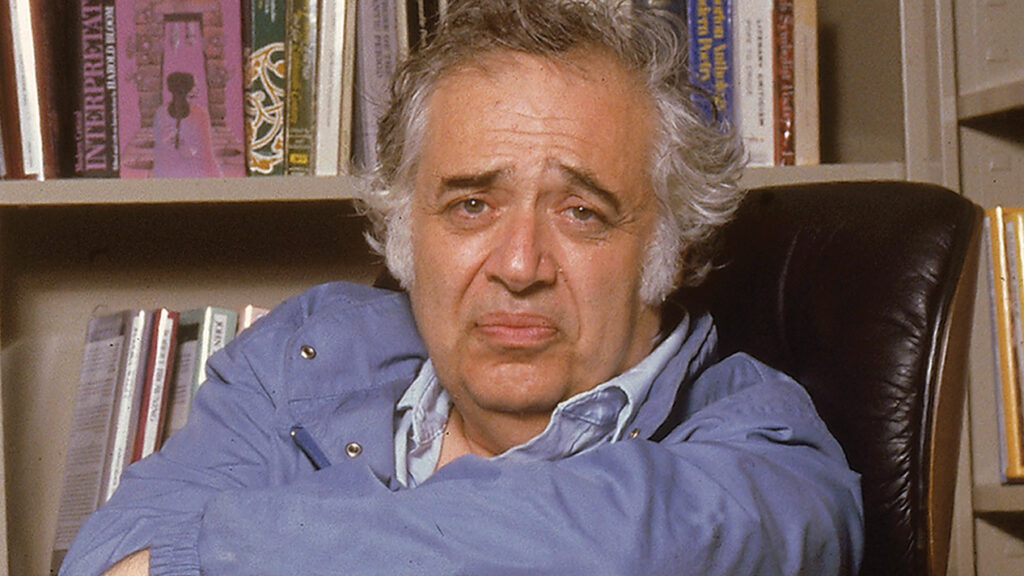
Remembering Harold Bloom
As Harold Bloom's student, I wanted to be transported to the heights of the literary sublime where he always seemed to reside, whatever the cost (it seemed considerable).
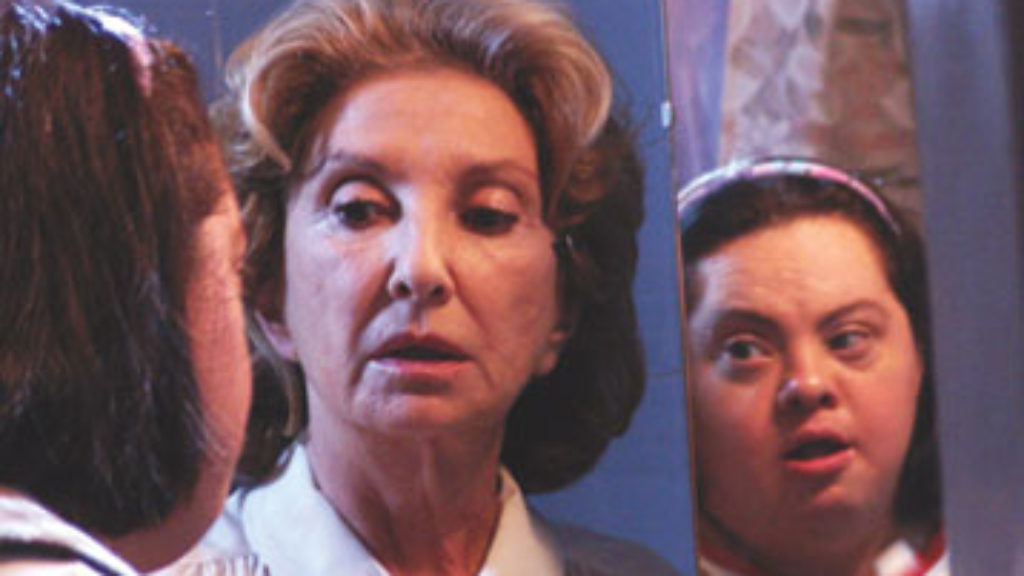
Anita and the Wolf
A new Argentinian film sheds light on living with Down Syndrome.
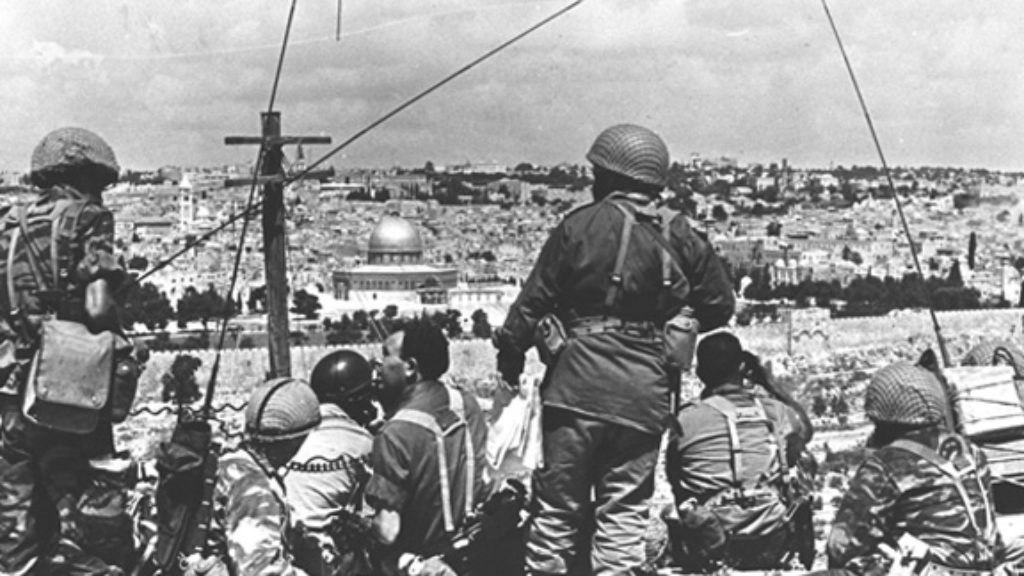
Nation and Narrative
The sons of Israel, from the kibbutz to the hesder yeshiva, came together to liberate Jerusalem in 1967. Yossi Klein Halevi portrays Israel by tracing their diverging paths in the years since.
Comments
You must log in to comment Log In